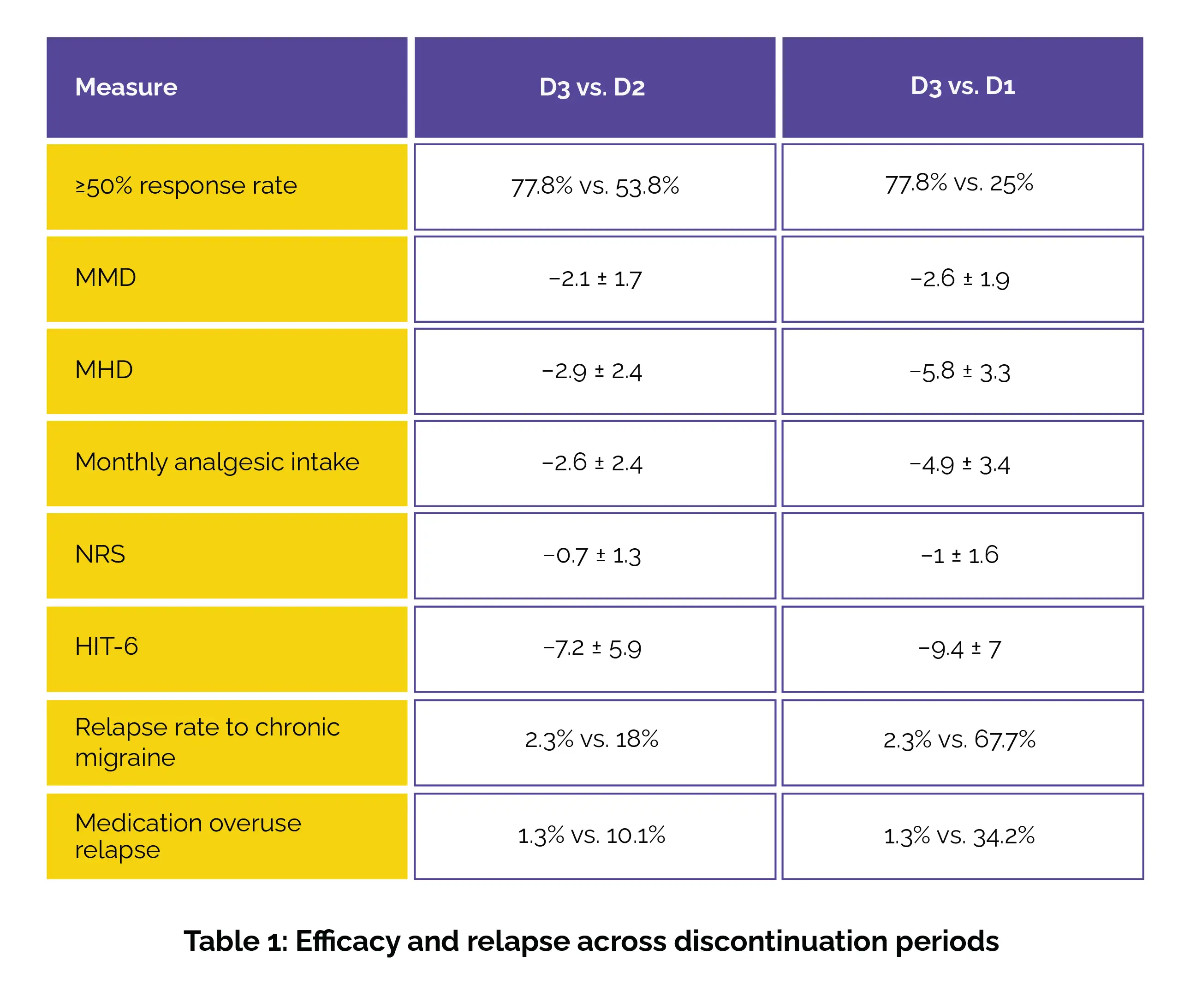Categories
Change Password!
Reset Password!


This real-world prospective study explored the long-term impact of continuing anti-calcitonin gene-related peptide (CGRP) monoclonal antibody (mAb) treatment beyond 3 years on migraine progression.
Longer-term treatment with anti-CGRP monoclonal antibodies may alter the trajectory of migraine course, offering sustained benefits for patients.
This real-world prospective study explored the long-term impact of continuing anti-calcitonin gene-related peptide (CGRP) monoclonal antibody (mAb) treatment beyond 3 years on migraine progression.
Overall, 212 patients suffering from high-frequency episodic migraine or chronic migraine who completed 3 consecutive treatment cycles of subcutaneous anti-CGRP mAb therapy were enrolled. Discontinuation phases (D1, D2, and D3) were described as the first month after discontinuing anti-CGRP mAbs following the first, second, and third treatment cycles (T1, T2, T3), respectively.
The key outcome was the ≥50% response rate at D3 when compared to D2. Alteration in monthly headache days (MHD), monthly migraine days (MMD), monthly analgesic consumption, numerical rating scale (NRS), Headache Impact Test-6 (HIT-6), ≥50% response rates at D3 when compared to D1 and D2, and recurrence rates to chronic migraine or medication overuse were the secondary outcomes ascertained.
At D3 compared to D2, notable improvements were noted in multiple migraine-related outcomes, including response rates, frequency of migraines and headaches, analgesic use, and overall migraine severity. Additionally, there was a marked decrease in relapse rates for chronic migraine and medication overuse. When D3 was compared to D1, even greater benefits were seen across all measures, including further reduction in migraine days, headache days, pain severity, and impact on quality of life, along with a significant decline in relapse rates (Table 1).

Extended anti-CGRP mAb treatment over a 3-year period revealed a marked shift toward improved outcomes, with a progressive increase in the proportion of patients experiencing ≥50% response rates and a remarkable reduction in migraine burden.
Journal of Neurology
Three-year treatment with anti-CGRP monoclonal antibodies modifies migraine course: the prospective, multicenter I-GRAINE study
Piero Barbanti et al.
Comments (0)